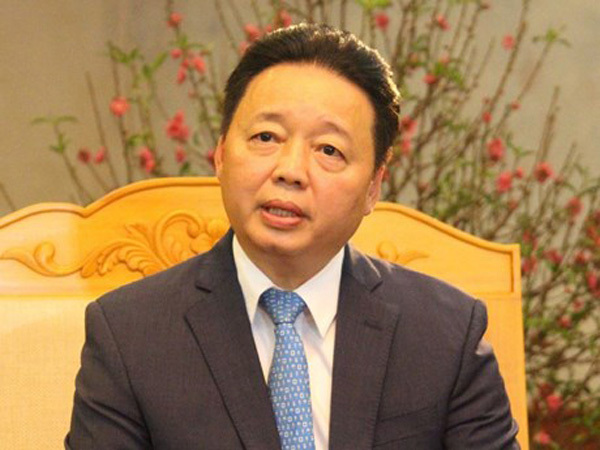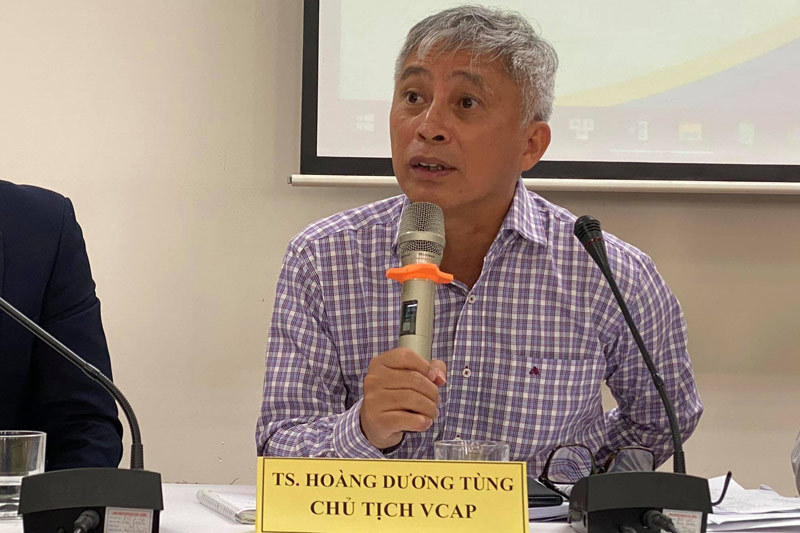 |
| Minister of Environment Tran Hong Ha. |
What are the new points in the revised Law on Environmental Protection?
The latest revised Law on Environmental Protection was adopted at the 14th session of the National Assembly Legislature. The law has 16 chapters with 141 articles. I think it is much more comprehensive than the law adopted in 2014. An important principle in the latest version is to create a comprehensive and harmonised Law on Environmental Protection. In other words, environmental issues will be addressed towards the objectives of active prevention and management.
We are confident that under the 2020 revised Law on Environmental Protection, the general public will exercise their rights and responsibilities in the course of implementing the law.
What’s more important is the new law introduces a set of management tools in the field of environmental protection. Under the new law, each enterprise will have to create its own environmental monitoring unit.
I’m confident that if the law is implemented well, we’ll achieve the targets of using our natural resources economically and more efficiently to develop a circular economy.
What are the next steps the Ministry of Natural Resources and Environment will do to make the law a reality?
The law has 141 articles and it focuses on 12 main groups of policies. Under the law, a strong decentralisation from the central Government down to grassroots level have been well described.
The law will come into force on January 1, 2022.
Before then we will be working with agencies and experts to launch a mass communications campaign to raise public awareness on protecting the environment, particularly water resources and natural forests.
How will the public environmental impact assessment be made after the Law is passed?
The law clearly stipulates the information needs to be disclosed, who is responsible for disclosing it, and the timing of the disclosure. Business owners have to be responsible for environmental impact assessment. State agencies set out the required standards and regulations of management for the project.
So when starting an investment project, along with feasibility preparation and technical design, businesses must also conduct environmental impact assessments. They will have to submit the document to the local authorities or the Ministry of Natural Resources and Environment and publish it on the business portal. The Ministry of Natural Resources and Environment will publish the document for reference and consultation on the Ministry's website.
The content of the public information will include the members of an appraising council, the appraisal results of the council and, if necessary, the environmental impact assessment report, as well as issues that the ministry deems necessary for consultation with experts.
How will these environmental policies be reflected in Government decrees?
The evaluation will be based on three key criteria: the type of waste; the use of natural resources and the impacts on the natural environment, particularly in residential areas, along with humans, the marine environment, biodiversity, biosphere reserves and natural heritage sites.
Of course, the scope and scale of the assessment depend on each type of project and that will be stated clearly in the project licence.
In the past, there were many types of licenses, such as licenses for discharging wastewater, included in the Law on Water Resources, the Law on Environmental Protection, and the Law on Irrigation. From now on, only one agency is responsible for environmental impact assessment and issuing licences.
Procedures will be reduced by about 50 per cent and compliance costs are also reduced. Businesses and people will benefit from this.
From the point of view of the environmental management agency, if there is already pollution, it is absolutely forbidden to discharge any more. In this law, for polluted rivers like Nhue and Day rivers, relocation will have to be conducted and there will absolutely no more discharge. The point is not to let the situation get worse. VNS

Draft of amended law on environmental protection is a step backwards: experts
Experts have expressed their concerns about the draft of an amended law on environmental protection compiled by the Ministry of Natural Resources and the Environment (MONRE).